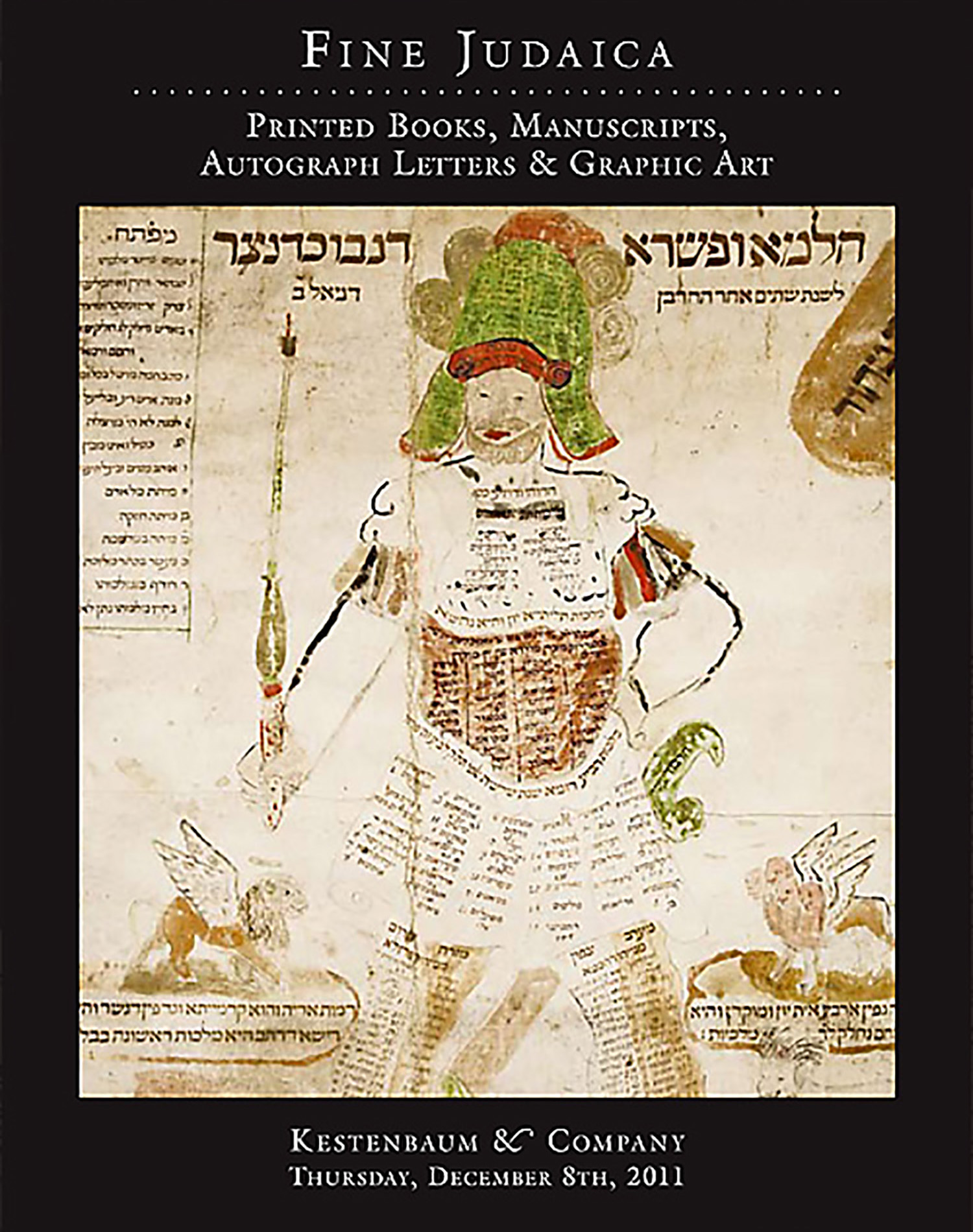Translat. Ukas an einen dirigirenden Senat…Verordnung über die Hebräer [German translation of imperial decree—Ukase—of Tsar Nicholas I, concerning the Jews of Russia]

AUCTION 53 |
Thursday, December 08th,
2011 at 1:00
Fine Judaica: Printed Books, Manuscripts Autograph Letters & Graphic Art
Lot 211
(RUSSIA)
Translat. Ukas an einen dirigirenden Senat…Verordnung über die Hebräer [German translation of imperial decree—Ukase—of Tsar Nicholas I, concerning the Jews of Russia]
St. Petersburg: April 13, 1835
Est: $4,000 - $6,000
This highly scarce and important Ukase or Imperial Decree offered Jews the opportunity to establish agricultural colonies in Russia. By the terms of the decree:
1) Jews were permitted to join the peasant class of Russia (par. 24). 2) Forty candidates could found a new colony (par. 25). Jews were permitted to rent or buy land from Christian owners. Jews joining the peasant class were to be relieved of certain taxes (par. 40). Jews colonizing fifty Jewish families on their estate were entitled to honorary citizenship (par. 47).
Despite these incentives, few Jews took the Tsar up on his offer. It would appear that the majority of Russian Jewry were less than enthusiastic about becoming agriculturalists. See JE, Vol. I, p.253.
The Ukase goes on to address the Merchant class of Jews (Chap. III). Chapter IV discusses the internal organization of the Jewish community (the Kahal). The regulations of 1835 reestablished within the Pale of Jewish Settlement the Polish Kahal organization. The duties of the Kahal included the collection of government and city taxes (par. 66-2), as well as the specifically Jewish tax (Korobna, i.e., Korobka or Basket-tax) (par.75), and the care of old, crippled and poor Jews (par.73). See JE, Vol. VII, pp.411, 562 (s.v. Korobka). Chapter V lays out the jurisdiction of the Rabbis. Chapter VI focuses on the education of the Jews from Gymnasia through University and the medical profession. Finally, Chapter VII places various restrictions on foreign Jews who have taken up residence in Russia.
Appended to this decree is the formula of the Oath (Eid) to be taken by the Rabbis in which they solemnly swear their allegiance to Tsar Nicholas (pp.13-14, 18-20). On pp. 15-17 we find in Hebrew the formulae for inscribing births, circumcisions, marriages, divorces and deaths.
